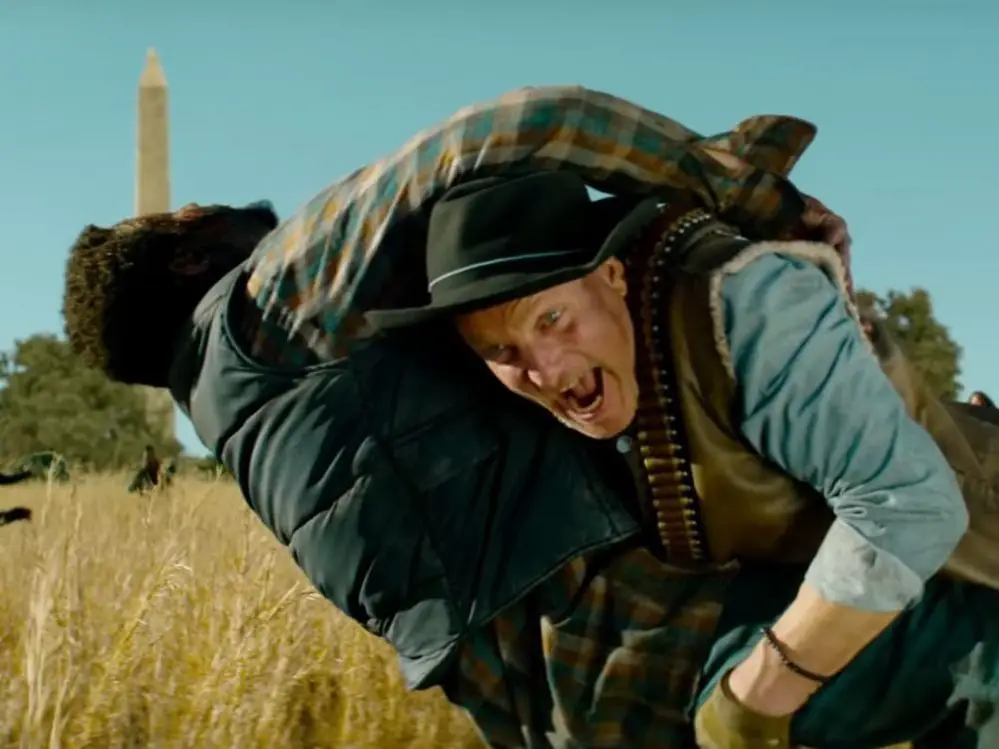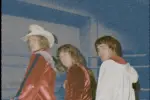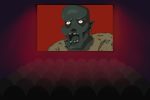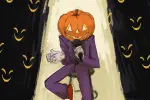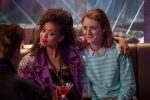Following the trend of many long-awaited sequels, “Zombieland: Double Tap,” which hit theaters this October, boasted a full return of its predecessor’s cast as an incentive to attract audiences after a decade away from the silver screen. Also returning was the creative team behind the camera, director Ruben Fleischer and writers Rhett Reese and Paul Wernick, all of whom are known for their involvement with Marvel movies like “Venom” and “Deadpool” respectively. Promotional material emphasized that this was no cheap corporate cash-grab; this sequel had been in the works for 10 years and planned to address the long span of time between movies. So, does the formula remain fresh after a decade on ice?
Originally conceived as a television series by writer-creators Reese and Wernick, “Zombieland” already spawned a sequel of sorts in an ill-fated Amazon TV pilot in spring 2013. Featuring a total recast in order to accommodate the diminished budget, the pilot hoped to expand the world of the movie and capitalize on gags such as the “Zombie Kill of the Week,” which makes much more sense in a weekly format.
However, the pilot faced a number of problems early on. Recasting the roles that were played by recognizable actors in the original film proved to be a poor choice early on, and the fact that “The Walking Dead,” a post-apocalyptic zombie show in its own right, was growing in popularity sunk the pilot. The radical decrease in budget was painfully obvious and the actors never sold the physicality of their roles, instead looking like amateurs in a fan film. Needless to say, the series was never picked up, and Reese and Wernick were forced to return to the drawing board.
Rumors of a “Zombieland” sequel with the original cast circulated for years, but as time went on, it became increasingly unlikely that a continuation of the story would ever see the light of day. The cast and writers were busy with other projects, and the movie snuggled into its cult classic status as it became buried underneath the overload of zombie content that overtook the early 2010s. Fans lost hope. Then, out of nowhere, Sony Pictures officially greenlit “Zombieland: Double Tap” in July 2018. Jesse Eisenberg, Woody Harrelson, Emma Stone and Abigail Breslin all signed on, and the movie jumped into production immediately.
Arriving in theaters just in time for everyone’s favorite spooky season, the sequel met expectations by earning $26.8 million at the domestic box office its opening weekend. The first film hit $60.1 million in just 17 days, making it the highest-grossing zombie film at the time, while in the 12 days since it premiered, “Double Tap” is already at $65.1 million worldwide. Reviews, however, have been less positive. The 2009 movie gained a Rotten Tomatoes score of 90%, but “Double Tap” has only reached 68%.
The aggregate site’s critics consensus states, “‘Zombieland: Double Tap’ makes up for a lack of fresh brains with an enjoyable reunion that recaptures the spirit of the original and adds a few fun twists.” With any sequel, “a lack of fresh brains” might be taken for granted, but this movie doesn’t attempt to reinvent itself. Instead, it feels like a natural continuation of the first movie.
Picking up 10 years after “Zombieland” — and therefore 10 years into the zombie apocalypse — we join Tallahassee (Harrelson), Columbus (Eisenberg), Wichita (Stone) and Little Rock (Breslin) in a state of uneasy domestic bliss camped out in the White House. Things are surprisingly easy for them: There’s still electricity, plentiful food and the zombies mostly leave them alone. The visuals are reminiscent of “The Last Man on Earth” as they wrap presents in Taft’s presidential portrait and play around with various gifts given to past presidents and decorate the building with precious artwork and historic artifacts taken from museums.
The primary source of conflict arises when Little Rock, who’s grown from a surprisingly competent and crass child into a young woman feeling stifled by Tallahassee as an overprotective father-figure and desperate to meet people her own age. Meanwhile, Wichita is bored in her relationship with Columbus, wondering if they would even be together if they weren’t some of the last people on earth. When he decides to be spontaneous and pops the question, the two sisters sneak off in the middle of the night and take Tallahassee’s beloved truck with them — only for Wichita to get promptly ditched when she disapproves of Little Rock’s new boyfriend, the pacifistic dope smoker Berkeley (Avan Jogia).
In the midst of all this drama, Tallahassee, Columbus and Wichita hit the road and travel to Graceland to rescue Little Rock before she becomes a hippie, accompanied by Columbus’ awkward one-night-stand, the gloriously ditsy Madison (Zoey Deutsch). Along the way, they meet a new breed of super zombie, the T-800s, Rosario Dawson, one super cool set-piece and a pair of doppelgangers. Mostly that’s just one long scene, which may take up at least one-fourth of the movie or just be too memorable for its own good. Either way, it’s the point when the movie becomes truly entertaining and the good feelings it engenders carry over into a bombastic finale.
Despite this praise, the beginning is rocky and only boasts a few laughs as it re-establishes the characters and their world. The zombies feel less threatening, and some of the humor feels outdated. In particular, Eisenberg’s narration is especially jarring. Possibly because recent movies have started eschewing voiceovers as a sin. There’s also an awkwardness to knowing that, in this world, pop culture hasn’t progressed beyond the year 2009. When they make a gag at “The Walking Dead,” they have to use the comic instead of the TV show. However, the writers should earn credit for that attention to detail, keeping within the already established continuity.
Hype can be a double-edged sword. On one hand, it gets people in the door. But, on the other, it can lead to an increased sense of disappointment. After the studio spent a reported $60 million on marketing, “Zombieland: Double Tap” was everywhere and even enticed people who had never seen it or had vague memories of the original. Consequently, recommending the film is equally complicated. For those who watched “Zombieland” when they were young — as one of their first R-rated movies — and remember it as one of the funniest movies they’d ever seen at the time, this sequel simply won’t hold up. Those who never saw it but heard it was good will likely find “Double Tap” to be a fun romp and a welcome relief on the tail-end of the great zombie wave as the 2010s comes to an end.


